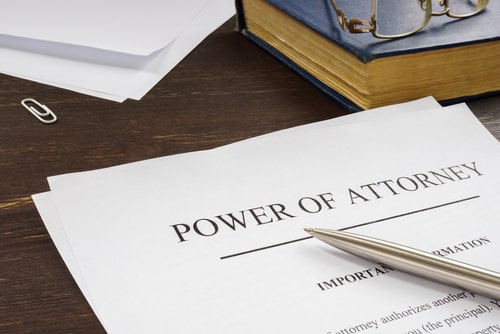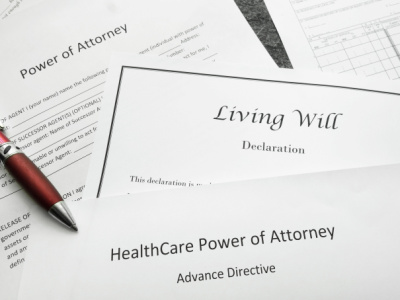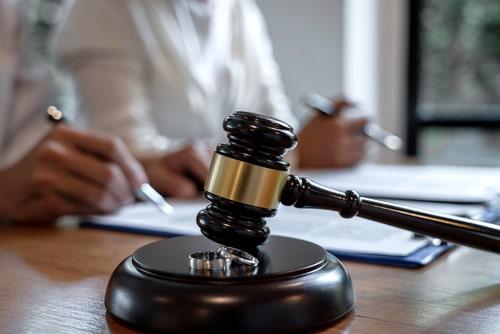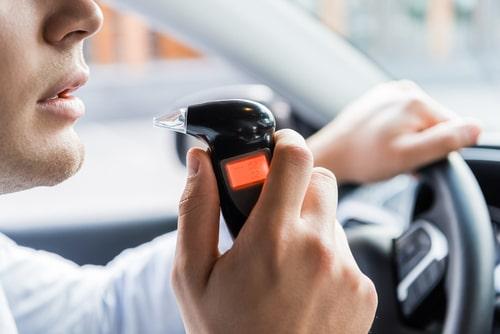Recent Blog Posts
What Is Power of Attorney in Ohio?
 Assigning power of attorney to a trusted person gives family members or another designated individual the power to make important decisions on your behalf. A power of attorney is typically used in cases where you are unable to make medical or end-of-life decisions for yourself.
Assigning power of attorney to a trusted person gives family members or another designated individual the power to make important decisions on your behalf. A power of attorney is typically used in cases where you are unable to make medical or end-of-life decisions for yourself.
Many people may be somewhat familiar with the concept of power of attorney. However, it is important to understand the specifics of how incorporating it into your estate planning might be helpful. An Ohio estate planning lawyer can answer your questions about assigning power of attorney in your estate.
Ohio Power of Attorney: The Basics
In Ohio, the Uniform Power of Attorney Act details the specifics of power of attorney and when it might be used. Under this act, there are two main types of power of attorney that you may be able to incorporate into your estate plan or will:
How Are Child Custody Decisions Made in Ohio Family Law Cases?
 Child custody disputes can be some of the most emotional and challenging aspects of a divorce or separation. In Ohio family law cases, the court's primary concern is always the best interests of the child. When making decisions regarding child custody, Ohio courts consider various factors to determine what arrangement will be most beneficial for the child's overall well-being. A skilled and experienced family law attorney can help you understand these factors and provide you with insight into how child custody decisions are made in Ohio.
Child custody disputes can be some of the most emotional and challenging aspects of a divorce or separation. In Ohio family law cases, the court's primary concern is always the best interests of the child. When making decisions regarding child custody, Ohio courts consider various factors to determine what arrangement will be most beneficial for the child's overall well-being. A skilled and experienced family law attorney can help you understand these factors and provide you with insight into how child custody decisions are made in Ohio.
Types of Child Custody
In Ohio, there are two general categories of child custody, which are usually referred to as legal custody and physical custody. Parents will usually be able to share both types of custody, although the arrangements put in place will depend on the specific issues involved in an individual case. Legal custody is known as the allocation of parental responsibilities under Ohio law, and it involves the parents' rights to make important decisions regarding their children's upbringing, such as education, healthcare, and religious practices. Physical custody is known as parenting time, visitation, or companionship, and it addresses where a child will primarily reside and when they will spend time in the care of each parent.
Potential Penalties for a Domestic Violence Arrest in Ohio
 Domestic violence is a serious offense that can have long-lasting physical, emotional, and legal consequences. In the state of Ohio, domestic violence laws aim to protect people from abusive acts committed by family members or people who live in their households. However, there are some situations where people may be falsely accused of domestic violence, and they may face criminal charges based on a misunderstanding or claims made against them following a family dispute. If you are arrested and charged with domestic violence in Ohio, it is crucial to understand the potential penalties you may face. By working with an experienced attorney, you can determine your best options for defending against a conviction and minimizing the penalties to your life, your family, your reputation, and your career.
Domestic violence is a serious offense that can have long-lasting physical, emotional, and legal consequences. In the state of Ohio, domestic violence laws aim to protect people from abusive acts committed by family members or people who live in their households. However, there are some situations where people may be falsely accused of domestic violence, and they may face criminal charges based on a misunderstanding or claims made against them following a family dispute. If you are arrested and charged with domestic violence in Ohio, it is crucial to understand the potential penalties you may face. By working with an experienced attorney, you can determine your best options for defending against a conviction and minimizing the penalties to your life, your family, your reputation, and your career.
Misdemeanor vs. Felony Domestic Violence Charges
In Ohio, domestic violence charges can either be classified as misdemeanors or felonies depending on various factors such as the severity of the offense and a person’s prior criminal history. In general, a person may be charged with domestic violence if they purposely or recklessly cause a family member to suffer physical harm or if they threaten to harm a family member. A person may also face criminal charges if they are accused of using threats or force to cause a member of their family or household to believe that they will suffer physical harm.
Should Advance Medical Directives Be Included in My Estate Plan?
 When it comes to estate planning, many people focus on making decisions about how their assets should be distributed after passing away, and they may create wills or trusts to ensure that their wishes will be carried out correctly. While this is an important aspect of estate planning, it is also important to consider how a person’s needs will be met during the rest of their lifetime. These can be especially crucial issues to address as a person ages, since they may not be able to fully care for themselves when they reach an advanced age, but they will still want to make sure the decisions they have made about their healthcare will be followed correctly. Advanced medical directives that address these issues can play an important role in your estate plan.
When it comes to estate planning, many people focus on making decisions about how their assets should be distributed after passing away, and they may create wills or trusts to ensure that their wishes will be carried out correctly. While this is an important aspect of estate planning, it is also important to consider how a person’s needs will be met during the rest of their lifetime. These can be especially crucial issues to address as a person ages, since they may not be able to fully care for themselves when they reach an advanced age, but they will still want to make sure the decisions they have made about their healthcare will be followed correctly. Advanced medical directives that address these issues can play an important role in your estate plan.
Understanding the Options for Advance Medical Directives
An advance medical directive is a legal document that allows you to make decisions about your healthcare in the event that you become unable to communicate or make decisions for yourself. These directives ensure that your wishes regarding medical treatment and end-of-life care are known and that your desires will be respected, regardless of what may happen to you in the future.
Can Spousal Support Be Modified After an Ohio Divorce?
 Going through a divorce can be challenging, especially when complex financial issues need to be addressed. In some cases, spousal support may be a factor, and one spouse may believe that they should receive ongoing support payments from the other after their marriage is terminated. While it is important for spouses to understand the role that spousal support or alimony will play during the divorce process, it is also important to understand when support payments may be modified or terminated in the years after a divorce. An experienced divorce attorney can make sure these issues will be addressed correctly as a couple works to end their marriage.
Going through a divorce can be challenging, especially when complex financial issues need to be addressed. In some cases, spousal support may be a factor, and one spouse may believe that they should receive ongoing support payments from the other after their marriage is terminated. While it is important for spouses to understand the role that spousal support or alimony will play during the divorce process, it is also important to understand when support payments may be modified or terminated in the years after a divorce. An experienced divorce attorney can make sure these issues will be addressed correctly as a couple works to end their marriage.
The Purpose of Spousal Support
In Ohio, courts may award spousal support based on several factors, such as the length of the marriage, the earning capacity of both spouses, each party’s age and health condition, the couple’s standard of living during their marriage, the decisions made about property division during the divorce, whether a parent will be working or staying at home to care for the couple’s children, contributions each spouse made to the other spouse’s career or education, the time needed for a spouse seeking support to be able to obtain education or job training, and any other relevant circumstances.
Will Ohio Legalize Recreational Marijuana?
 For much of the past several decades, marijuana use has been illegal throughout the United States. However, in recent years, more and more people have come to accept that this drug is not as dangerous as other illegal substances, and they believe that it should be treated similarly to alcohol. As a result, many states have legalized marijuana for recreational use. Ohio may soon join the ranks of these states if voters approve a ballot measure that will allow adults to possess and use marijuana for recreational purposes. However, there are still some situations where people may face criminal charges for possession of marijuana. Those who have been charged with drug crimes can work with an attorney to determine their best options for defense.
For much of the past several decades, marijuana use has been illegal throughout the United States. However, in recent years, more and more people have come to accept that this drug is not as dangerous as other illegal substances, and they believe that it should be treated similarly to alcohol. As a result, many states have legalized marijuana for recreational use. Ohio may soon join the ranks of these states if voters approve a ballot measure that will allow adults to possess and use marijuana for recreational purposes. However, there are still some situations where people may face criminal charges for possession of marijuana. Those who have been charged with drug crimes can work with an attorney to determine their best options for defense.
Ohio’s Marijuana Ballot Initiative
After the Coalition to Regulate Marijuana Like Alcohol collected enough signatures on a petition, Ohio residents will be able to vote on an initiative to determine whether recreational marijuana should be made legal in the state. This vote will be held on November 7, 2023. If this measure is passed, Ohio residents who are over the age of 21 will be allowed to purchase, possess, and use up to 2.5 ounces (around 70 grams) of marijuana or 15 grams of concentrated cannabis. Adults will also be allowed to grow up to six marijuana plants in their homes.
Regaining Your License After a DUI in Ohio: A Step-by-Step Guide
 If you've lost your driver's license due to a DUI (Driving Under the Influence) in Ohio, you might be feeling overwhelmed and uncertain about the steps to regain your driving privileges. The process can seem daunting, but with the right information and guidance, you can successfully navigate through it.
If you've lost your driver's license due to a DUI (Driving Under the Influence) in Ohio, you might be feeling overwhelmed and uncertain about the steps to regain your driving privileges. The process can seem daunting, but with the right information and guidance, you can successfully navigate through it.
Understanding Ohio DUI Laws
In Ohio, DUI offenses are often referred to as OVI (Operating a Vehicle Impaired) charges. If you are found guilty of an OVI, your license will be suspended, and you may face additional penalties such as fines, probation, or even jail time depending on the severity of the offense.
The duration of the license suspension varies depending on the number of prior DUI convictions and the blood alcohol concentration (BAC) at the time of the arrest. It is essential to familiarize yourself with Ohio's DUI laws to understand the specific consequences you may be facing.
How to Start the Divorce Process in Ohio
 Going through a divorce is a challenging and emotional time. When considering divorce in Ohio, it's essential to have a clear understanding of the process and the necessary steps involved. Initiating the divorce process in Ohio can be overwhelming, but understanding the necessary steps and seeking legal advice can help you navigate the complexities of the legal system.
Going through a divorce is a challenging and emotional time. When considering divorce in Ohio, it's essential to have a clear understanding of the process and the necessary steps involved. Initiating the divorce process in Ohio can be overwhelming, but understanding the necessary steps and seeking legal advice can help you navigate the complexities of the legal system.
Understanding Ohio Divorce Laws
Before embarking on the divorce process, it's crucial to familiarize yourself with Ohio's divorce laws. These laws govern the dissolution of marriages and address various aspects, such as child custody, property division, and spousal support. Consulting with an experienced family law attorney is highly recommended to ensure you understand your rights and responsibilities throughout the divorce process.
Ohio’s Residency Requirements for Divorce
To file for divorce in Ohio, you must meet the state's residency requirements. At least one of the spouses must have lived in Ohio for at least six months before filing for divorce. Additionally, the divorce must be filed in the county where either spouse resides. If you and your spouse have recently moved to Ohio or are unsure about meeting the residency criteria, consulting with a divorce attorney can provide clarity.
Estate Planning in Medina County: Protecting Your Legacy with Wills and Trusts
 Planning for the future can be a daunting task, but estate planning can help give you peace of mind knowing that your assets will be handled according to your wishes. Wills and trusts are two important estate planning tools that can help you ensure that your loved ones are taken care of after you pass away.
Planning for the future can be a daunting task, but estate planning can help give you peace of mind knowing that your assets will be handled according to your wishes. Wills and trusts are two important estate planning tools that can help you ensure that your loved ones are taken care of after you pass away.
Setup Your Will for Your Estate
A will is a legal document that outlines how you want your assets to be distributed after you die. Without a will, your assets will be distributed according to state law, which may not align with your wishes. A will allows you to name an executor, the person who will manage your estate and ensure that your assets are distributed according to your wishes. You can also name guardians for your minor children, establish trusts for their care, and even leave specific items or amounts of money to certain individuals or charities.
5 Breathalyzer Issues That May Get You Out of an OVI
 When facing an OVI (operating a vehicle impaired) charge, it is important to know your rights. Individuals with a blood alcohol concentration above the legal limit are considered intoxicated per se. One of the most common methods for determining intoxication is through a breathalyzer test, but these tests are not foolproof. Consequently, a failed breath test does not automatically mean that the driver will be convicted of drunk driving.
When facing an OVI (operating a vehicle impaired) charge, it is important to know your rights. Individuals with a blood alcohol concentration above the legal limit are considered intoxicated per se. One of the most common methods for determining intoxication is through a breathalyzer test, but these tests are not foolproof. Consequently, a failed breath test does not automatically mean that the driver will be convicted of drunk driving.
Here are five potential issues with a breathalyzer test that could potentially lead to an acquittal, the OVI case being dismissed, or the charges against you dropped.
Breath Testing Devices Have to be Calibrated to Function Correctly
Breathalyzers have to be serviced and calibrated on a regular basis in order to ensure their accuracy. If it is discovered that the device used during your test was not properly calibrated and maintained, this greatly reduces the reliability of the results. This could potentially be grounds for dismissal of the OVI charge.




